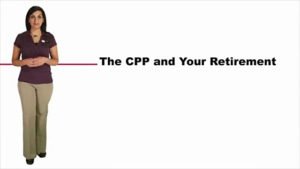 Here’s my latest MoneySense Retired Money blog, which looks at the perennial topic of when to take the Canada Pension Plan, or CPP. Click on the highlighted text that follows: The best time to take CPP to maximize payouts. (It may be necessary to subscribe to get full access to the piece after a certain limited number of monthly views to the site).
Here’s my latest MoneySense Retired Money blog, which looks at the perennial topic of when to take the Canada Pension Plan, or CPP. Click on the highlighted text that follows: The best time to take CPP to maximize payouts. (It may be necessary to subscribe to get full access to the piece after a certain limited number of monthly views to the site).
In an earlier blog in the series, I revealed why personally I planned to take Old Age Security as soon as it was on offer, at age 65.
In this followup, I come to the diametrically opposite conclusion that the longer you commence deferring the onset of CPP benefits, the better — assuming normal health and longevity expectations.

I consulted three major sources for the piece. One is Doug Dahmer, founder of Burlington-based Emeritus Retirement Solutions. You can also access a useful CPP tool he runs at www.cppoptimizer.com. Run Dahmer’s name in the Hub’s search engine and you can find a number of guest blogs on the topic of decumulation.
In a nutshell, Doug thinks most of us — including me and my wife — should defer CPP as late as 70, choosing instead to start withdrawing from RRSPs in our 60s, assuming the money is needed on.
Another useful source I consulted is Doug Runchey of Victoria-based DR Pensions Consulting. For a small fee, Runchey — who used to work with the CPP — will take your government-issued CPP contribution statements and crunch the numbers to tell you how to optimize your benefits.
Calculating your dropout years

A third source is Tridelta’s Matthew Ardrey, who has also contributed guest blogs to the Hub. (See for example When is the Right Time for You to Take CPP and OAS?). For the MoneySense piece, Ardrey goes into some depth on the tricky topic of counting drop-out years, and reveals an interesting arithmetical formula for estimating the optimum time, which I hadn’t encountered before.
Of course, and as retired actuary Malcolm Hamilton has pointed out in earlier pieces, when it comes to deciding when to start collecting CPP or OAS benefits, or for that matter employer-sponsored pensions or starting a RRIF, it really comes down to when you need the money. Dahmer makes good arguments for starting later but he assumes hefty values in RRSPs, something not everyone will have. If you can get by without CPP in the hopes of much more CPP in the future, then that may make sense. But if you need the money to live on now, then that’s an equally simple decision: take the money and run!
Easier to defer CPP if taking a Victory Lap
Certainly if you consider yourself in a post-corporate work mode — what Mike Drak and I term Victory Lap Retirement — then some part-time work income and perhaps some early RRSP withdrawals to top you up to bracket (see earlier Retired Money column on that) will probably allow you to defer CPP. By the way, Victory Lap Retirement is now available on the Kindle and can be preordered for Kobo, as well as directly via Mike’s website at www.victorylapretirement.com. It should be in major bookstores by early October.



2 questions:
1) why are zero contribution years never included in the discussions? – they are an issue if you take early retirement and/or have non-earned income streams
2) why are the cashflows never discounted back to present values? – apples today, oranges tomorrow – not the same thing
When I did the calculations (for myself) the overwhelming conclusion was to take CPP as soon as possible – yes I got more when I was in my eighties but so what probably couldn’t use it then.